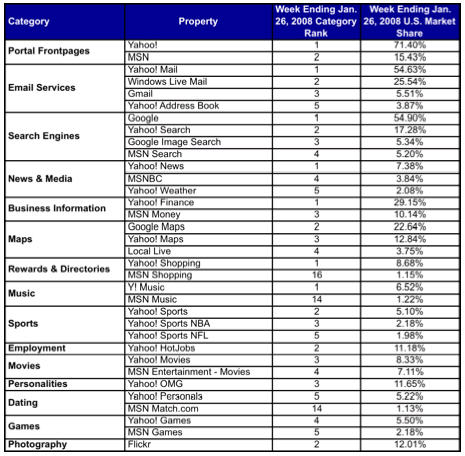Google warns that Microsoft could monopolize the Internet with Yahoo

Google's SVP of Corporate Developer and Chief Legal Officer David Drummond posted a statement about Microsoft's bid for Yahoo. The gist of the statement is that Microsoft could "attempt to exert the same sort of inappropriate and illegal influence over the Internet that it did with the PC."
Google is prepping the regulators of the world to look unfavorably upon Microsoft's attempt to compete with the search giant.
Drummond (the proxy for Google's executive team) asks:
Could a combination of the two take advantage of a PC software monopoly to unfairly limit the ability of consumers to freely access competitors' email, IM, and web-based services? Policymakers around the world need to ask these questions -- and consumers deserve satisfying answers.
In the name of Internet openness, choice and innovation, Google begs policy makers to think the worst of Microsoft, which has a history of bad behavior when it comes to level playing fields. It's not hard for regulators to think the worst of the company Bill Gates built.
On the other hand, Google seems to running away with the search business, and will end up dominating (monopolizing?) search over the next few years if the current trends continues. And that concerns Microsoft and Yahoo.
Basically, Google is trying to throw a wrench in Microsoft's gears. Given its history of predatory behavior, Microsoft will likely need to make some Do No Evil promises with regulators to allow the transaction with Yahoo to be completed.
Following is the full statement:
Yahoo! and the future of the Internet Posted by David Drummond, Senior Vice President, Corporate Development and Chief Legal Officer
The openness of the Internet is what made Google -- and Yahoo! -- possible. A good idea that users find useful spreads quickly. Businesses can be created around the idea. Users benefit from constant innovation. It's what makes the Internet such an exciting place.
So Microsoft's hostile bid for Yahoo! raises troubling questions. This is about more than simply a financial transaction, one company taking over another. It's about preserving the underlying principles of the Internet: openness and innovation.
Could Microsoft now attempt to exert the same sort of inappropriate and illegal influence over the Internet that it did with the PC? While the Internet rewards competitive innovation, Microsoft has frequently sought to establish proprietary monopolies -- and then leverage its dominance into new, adjacent markets.
Could the acquisition of Yahoo! allow Microsoft -- despite its legacy of serious legal and regulatory offenses -- to extend unfair practices from browsers and operating systems to the Internet? In addition, Microsoft plus Yahoo! equals an overwhelming share of instant messaging and web email accounts. And between them, the two companies operate the two most heavily trafficked portals on the Internet. Could a combination of the two take advantage of a PC software monopoly to unfairly limit the ability of consumers to freely access competitors' email, IM, and web-based services? Policymakers around the world need to ask these questions -- and consumers deserve satisfying answers.
This hostile bid was announced on Friday so there is plenty of time for these questions to be thoroughly addressed. We take Internet openness, choice and innovation seriously. They are the core of our culture. We believe that the interests of Internet users come first -- and should come first -- as the merits of this proposed acquisition are examined and alternatives explored.
Brad Smith, Microsoft's general counsel and senior vice president responded to Drummond, citing Google's search share:
Today, Google is the dominant search engine and advertising company on the Web. Google has amassed about 75 percent of paid search revenues worldwide and its share continues to grow. According to published reports, Google currently has more than 65 percent search query share in the U.S. and more than 85 percent in Europe. Microsoft and Yahoo! on the other hand have roughly 30 percent combined in the U.S. and approximately 10 percent combined in Europe.
Microsoft is committed to openness, innovation, and the protection of privacy on the Internet. We believe that the combination of Microsoft and Yahoo! will advance these goals.
Below is the data for U.S. visits for areas such as email, instant messaging and service from Hitwise that puts fear into Google:
